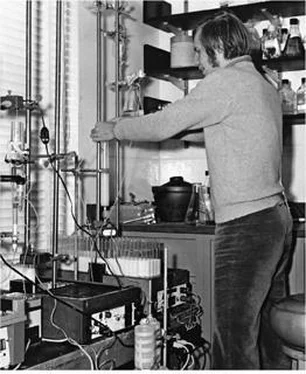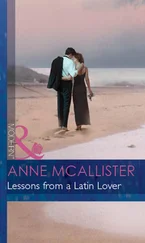James Watson - AVOID BORING PEOPLE - Lessons from a Life in Science
Здесь есть возможность читать онлайн «James Watson - AVOID BORING PEOPLE - Lessons from a Life in Science» весь текст электронной книги совершенно бесплатно (целиком полную версию без сокращений). В некоторых случаях можно слушать аудио, скачать через торрент в формате fb2 и присутствует краткое содержание. Жанр: Биографии и Мемуары. Описание произведения, (предисловие) а так же отзывы посетителей доступны на портале библиотеки ЛибКат.
- Название:AVOID BORING PEOPLE: Lessons from a Life in Science
- Автор:
- Жанр:
- Год:неизвестен
- ISBN:нет данных
- Рейтинг книги:5 / 5. Голосов: 1
-
Избранное:Добавить в избранное
- Отзывы:
-
Ваша оценка:
- 100
- 1
- 2
- 3
- 4
- 5
AVOID BORING PEOPLE: Lessons from a Life in Science: краткое содержание, описание и аннотация
Предлагаем к чтению аннотацию, описание, краткое содержание или предисловие (зависит от того, что написал сам автор книги «AVOID BORING PEOPLE: Lessons from a Life in Science»). Если вы не нашли необходимую информацию о книге — напишите в комментариях, мы постараемся отыскать её.
AVOID BORING PEOPLE: Lessons from a Life in Science — читать онлайн бесплатно полную книгу (весь текст) целиком
Ниже представлен текст книги, разбитый по страницам. Система сохранения места последней прочитанной страницы, позволяет с удобством читать онлайн бесплатно книгу «AVOID BORING PEOPLE: Lessons from a Life in Science», без необходимости каждый раз заново искать на чём Вы остановились. Поставьте закладку, и сможете в любой момент перейти на страницу, на которой закончили чтение.
Интервал:
Закладка:
Only after a thorough review of how the USDA and FDA dealt with pesticides did our panel invite Rachel Carson to appear. Pleased at being asked, she was nevertheless perfectly even-tempered on that late January day, giving no indication of the nutty hysterical naturalist that agricultural and chemical lobbyists had portrayed her to be. The chemical giant Monsanto had distributed five thousand copies of a brochure parodying Silent Spring entitled “The Desolate Years,” describing a pesticide-free world devastated by famine, disease, and insects. The attack was mirrored in Time magazine's review of Silent Spring deploring Carson's oversimplification and downright inaccuracy. Two weeks after meeting with her, our panel finished a much debated first draft of our presidential report. Though it accepted as indispensable the role of pesticides in modern agriculture and public health (e.g., to control mosquitoes), most of it was devoted to dangers that pesticides posed for human beings, fish, wildlife, and the environment.
The USDA reacted to the draft with instant fury, and Secretary Orville Freeman wrote to PSAC that in its present form the report would profoundly damage U.S. agriculture. After more pages on the benefits of pesticides had been added and the full PSAC panel had approved it, the USDA then demanded that they make a full review of it before the president released it. But Jerry Wiesner held firm, refusing to add a blanket statement that the food of our nation was safe or to remove the final sentence, which paid tribute to Rachel Carson for alerting the public to the problem. To our great relief President Kennedy released the document un corrupted on May 15,1963.
By then Diana de Vegh was no longer part of Marc Raskin's attic office above PSAC in the Executive Office Building. Despite having recently purchased a house on a quiet street near Georgetown University, she had precipitously left for Paris. My Washington meals increasingly had to be taken with fellow panel members or with Leo Szilard and his wife, then living out of suitcases at the Dupont Plaza Hotel.
During the Cuban missile crisis, Leo was so terrified that war was about to break out that he left New York for Geneva via Rome, where he tried unsuccessfully to get the pope's attention. A month later, the Szilards somewhat sheepishly returned to Washington, where Leo continued to devise unorthodox schemes to reduce the probability of nuclear war. Now aboveground test blasts were again occurring, with the Soviets breaking the international moratorium soon after the Berlin Wall went up. Six months later, our bomb makers were to follow suit.At that time, my major political concern was ever-expanding U.S. involvement in Vietnam. Then just back in Washington were my sister, Betty, and her husband, Bob, the former CIA station chief in Cambodia. Bob's more than fifteen years of experience in the Far East had convinced him that sending more American troops to Vietnam would create a quagmire that would long haunt our nation. But he knew that many U.S. Army officials were more optimistic. In their ranch-style house, within easy commuting distance to CIA headquarters in Langley, Virginia, I expressed my belief that our Limited War Panel had nothing to offer the American cause in Vietnam. By then I had learned that staph enterotoxin could no longer be considered merely an “incapacitating” agent. Monkeys exposed to it through their lungs promptly died. We had to assume that humans would suffer the same fate if exposed. I informed John Richardson of this fact four months later, when he came out to Bob and Betty's house following his removal as station chief in Saigon, an action taken to mean that the United States no longer supported the corrupt Diem government. Two years before, on my way to Cambodia for a family visit, I had been warned by Bob Bloom, then leading the CIA's secretly funded Asia Foundation, that any successor to Diem was likely to be even worse.
A month later I was with the “superspook,” Desmond FitzGerald, whose house I came to one mid-June evening to take his stepdaughter, a classmate of Abby Rockefeller's, to dinner. A member of the Social Register elite that helped found the CIA, Desmond knew from his experience in the Philippines that bribes, not soldiers, were generally the best way to promote American foreign policy objectives in Asia. His mind seemed elsewhere when I indicated doubt that Fort Detrick's
rice blast arsenal could prevent North Vietnam from continuing to support the Viet Cong. Only twenty-five years later did I learn that Desmond had been entrusted by Bobby Kennedy with the task of assassinating Fidel Castro.Though I attended a full Limited War Panel meeting in early May, my main PSAC role then was to lead its new panel on cotton insects. Its origin lay in a request to JFK from Arizona's Senator Carl Hayden that the federal government somehow prevent the boll weevil from spreading from Mexico into his state's highly profitable irrigated cotton fields. Pesticides already amounted to 20 percent of total production costs in southeastern states, and every year boll weevils were becoming increasingly resistant to the chlorinated hydrocarbons being used. When our panel first met in nearby Beltsville, Maryland, we were briefed about the problem as well as a possible solution. The sterilization procedures that had supposedly eliminated screwworms from selected horse-racing regions of Florida promised a theoretically ideal method of purging the cotton crop of the boll weevil. But the technique's application to weevil eradication seemed practically daunting. Producing and releasing enough sterile boll weevils to significantly reduce their population could easily cost several billion dollars.
During our subsequent tours of the cotton fields of Mississippi, Texas, California, and Mexico, the entomologists who dominated our panel believed integrated pest management approaches could save farmers from further pesticide expenditures. Our first stop was the Boll Weevil Research Laboratory at Mississippi State College in Starkville, not surprisingly located in the congressional district of the powerful Jamie Whitten. As chairman of the House Appropriations Committee, Whitten was more influential in shaping agricultural research policies than the secretary of agriculture. Later as we drove toward the vast cotton fields of the still British-owned Delta and Pine cotton plantation near Greenville, the homes of the “hoe-hands” who weeded the cotton fields struck me as even more run-down than the dwellings bordering the rice paddies of Cambodia that I had visited two years earlier. Later the Delta and Pine official showing us around his vast domain remarked that his farm laborers lazily stopped hoeing every time his car passed out of sight.
On our way to the USDA cotton insect lab near Brownsville, Texas, we were lucky not to be in a convertible when our car was doused with pesticides released by a small plane flying overhead. Pesticide advertisements were ubiquitous on the large roadside billboards, where competing agrochemical companies touted the merits of their respective pesticide brews like so many aftershaves. Before I got to Texas, I had hopes that the boll worm, in some years a worse pest than the boll weevil, might be best controlled by spraying with polyhedral viruses. Similar viruses had already been used to control the spruce bud worm in Canada, but such an enterprise could not be supported here, as we found to our dismay that 85 percent of the Brownsville laboratory's budget went to salaries. A major function of most USDA regional labs was then to provide patronage jobs for friends of local congressmen. At the Boll Weevil Research Lab, for example, the chief administrative assistant was a close relative of Congressman Whitten.In the fall we came together three times to hammer out details of our final report. I wrote the introductory sentence: “The boll weevil is almost a national institution.” Secretly I hoped that JFK himself might read it and mark me out as a potential speech writer. On the first day of our last scheduled meeting, we were interrupted by Colin MacLeod's deputy, Jim Hartgering, bursting in to tell us that the president had been shot in Dallas. Halfheartedly we tried to refocus on cotton insects until news reached us an hour later that JFK had died. In a state of shock, I walked about the PSAC offices, soon drifting upstairs to see Marc Raskin, who for months had wanted to resign from his sideline position on Bundy's National Security Council to start his own foreign policy institute. We wondered under what circumstances Diana de Vegh would hear the news. That Lyndon Johnson was to be our president was at that moment emotionally impossible to accept.
Читать дальшеИнтервал:
Закладка:
Похожие книги на «AVOID BORING PEOPLE: Lessons from a Life in Science»
Представляем Вашему вниманию похожие книги на «AVOID BORING PEOPLE: Lessons from a Life in Science» списком для выбора. Мы отобрали схожую по названию и смыслу литературу в надежде предоставить читателям больше вариантов отыскать новые, интересные, ещё непрочитанные произведения.
Обсуждение, отзывы о книге «AVOID BORING PEOPLE: Lessons from a Life in Science» и просто собственные мнения читателей. Оставьте ваши комментарии, напишите, что Вы думаете о произведении, его смысле или главных героях. Укажите что конкретно понравилось, а что нет, и почему Вы так считаете.












